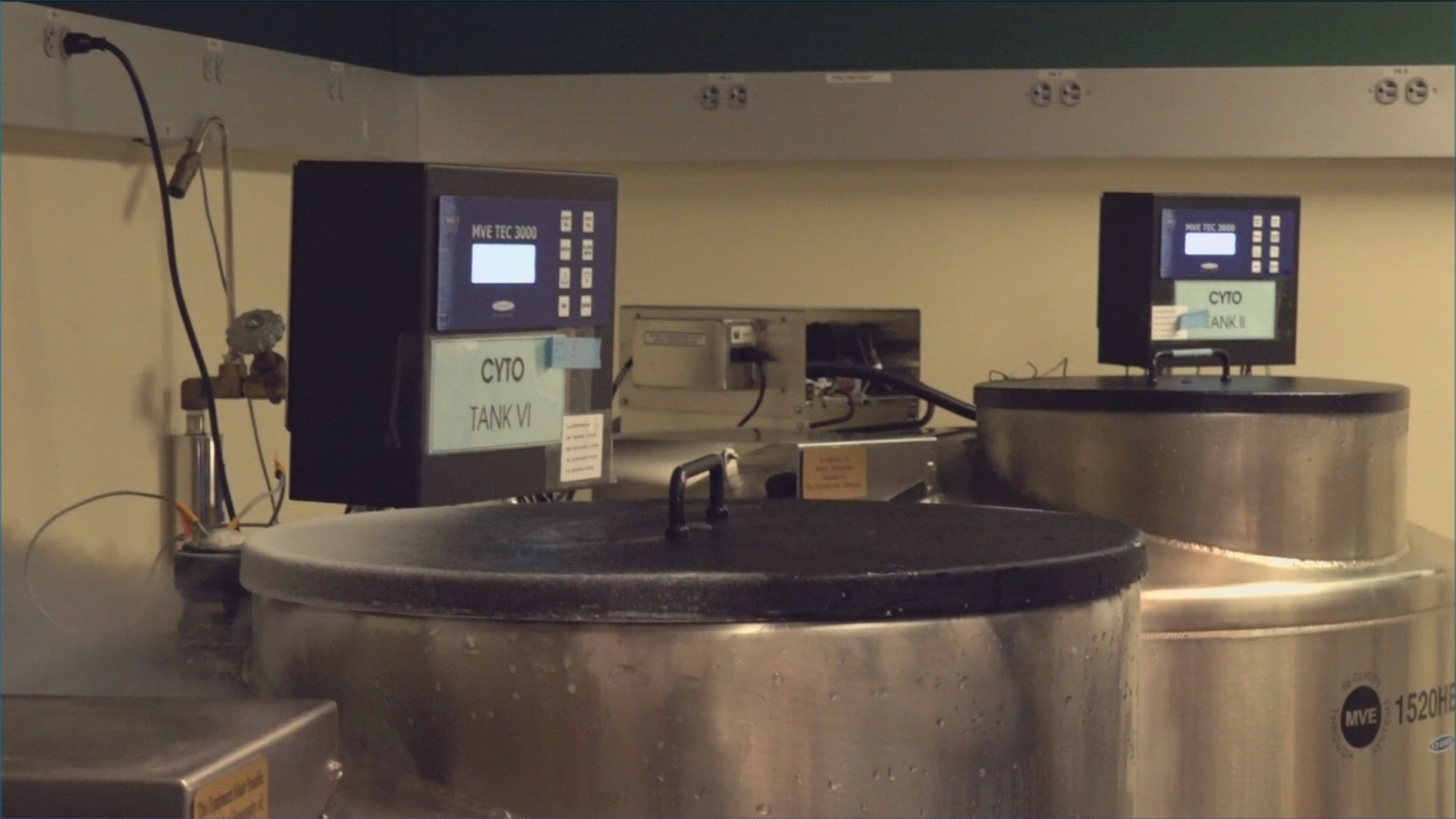SAN DIEGO — San Diego Zoo Wildlife Alliance’s Frozen Zoo was established nearly 50 years ago. Wednesday, they made a big announcement that can pave the way to clone more animals.
"We have birds, mammals, reptiles and amphibians. Each vial has 1 to 3 million living cells," said Marlys Houck, Curator of Frozen Zoo.
Liquid nitrogen at 320 degrees below zero keeps cell samples from more than 10,000 animals frozen to be used to produce stem cells to clone animals. So far, they have cloned horses and a black-footed ferret.
"Cells were frozen and used all these years later to create a black-footed ferret clone that will help bring back genetic diversity," said Houck.
CBS 8 went on a safari ride to see the world’s first cloned Przewalski’s horse who is alive today thanks to biobanking technology and conservation innovation.
His name is Kurt; named after Kurt Bernirschke, Creator of the Frozen Zoo.
"It shows that the technology works. We can actually recreate animals from the Frozen Zoo and maintain genetic diversity," said Barbara Durrant, Director of Reproductive Sciences.
Przewalski's horses are an endangered species, yet this cutting-edge technology prevents them from going extinct.
The International Union for Conservation of Nature announced San Diego will be the first center ever to focus exclusively on biobanking in hopes of preserving genetic diversity.
"I can't image a more perfect place to make this announcement for our organization than right here next to the statute of Dr. Kurt Bernischke!" Dr. Kira Mileham with the International Union for Conservation of Nature Species Survival Center.
WATCH RELATED: San Diego Zoo and Safari Park animals beat the heat

